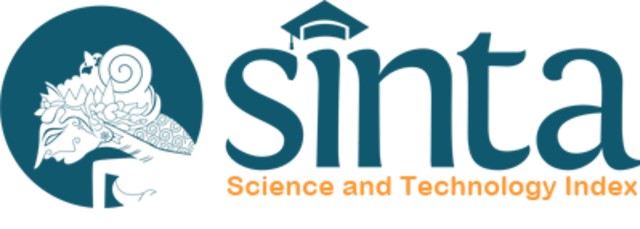Transformasi Digital Dalam Rangka Mendukung Penerapan Sistem Jaminan Halal Berdasarkan Pernyataan Pelaku Usaha (Studi Kasus Di IKM Es Krim XYZ)
Abstract
In order to increase the competitiveness of small and medium industries, it is necessary to increase the capacity of IKM in all business value chains. The government has imposed mandatory halal certificates for products in the region as a form of guarantee for halal products. For this reason, in order to encourage the competitiveness of IKM by penetrating the market through halal product guarantee certification, it is necessary to identify the conformity of the production of IKM XYZ with the Halal Product Assurance System for Micro, Small, and Medium Entreprises (MSMEs) based on the Circular Letter of the Head of the Halal Product Assurance Organizing Agency Number B-5952/BD.II./P.II.I.2/HM.00/09/2021. The following case study research was carried out using the method of identifying the initial conditions of IKM XYZ through interviews, then conducting an assessment of the Decree of the Head of the Halal Product Guarantee Agency Number 33 of 2022. Based on the identification results, it was determined that improvement was needed on the halal traceability aspect which had an impact on the inspection of the arrival of materials; transportation and distribution of materials and products; and Product launch/sales. In line with the Making Indonesia 4.0 policy that digital transformation is carried out in order to meet sustainability standards, the findings of improving the halal process are carried out by adopting digitalization. For this reason, digitization is carried out in digital bookkeeping activities to meet the criteria for halal guarantees in the form of a cloud-based data center. Based on the discussion conducted, it was concluded that the application of database technology based on number processing and cloud storage can provide answers to the findings of identification of halal product guarantees.
Downloads
References
Aravindaraj, K., & P. Rajan Chinna. 2022. A systematic literature review of integration of industry 4.0 and warehouse management to achieve Sustainable Development Goals (SDGs). Cleaner Logistics and Supply Chain, 5, 100072. https://doi.org/10.1016/j.clscn.2022. 100072.
Fernandez-Viagas, V., & J.M. Framinan. 2022. Exploring the benefits of scheduling with advanced and real-time information integration in Industry 4.0: A computational study. Journal of Industrial Information Integration, 27, 100281. https://doi.org/10.1016/ j.jii.2021.100281.
Rafianti, F., R. Krisna, & E. Radityo. 2022. Dinamika Pendampingan Manajemen Halal Bagi Usaha Mikro dan Kecil Melalui Program Self Declare. Jurnal Sains Sosio Humaniora; 6(1): 636-643.
Hamid, A., M. Said, & E. Meiria. 2019. Potency and Prospect of Halal Market in Global Industry: An Empirical Analysis of Indonesia and United Kingdom. Business and Management Studies, 5(2): 54. https://doi.org/ 10.11114/ bms.v5i2.4167.
Ho, K.L.P., H.T. Quang, & M.P. Miles. 2022. Leveraging entrepreneurial marketing processes to ameliorate the liability of poorness: The case of smallholders and SMEs in developing economies. Journal of Innovation & Knowledge, 7(4), 100232. https://doi.org/10. 1016/ j.jik.2022.100232.
Horváth, D., & R.Zs. Szabó. 2019. Driving forces and barriers of Industry 4.0: Do multinational and small and medium-sized companies have equal opportunities? Technological Forecasting and Social Change, 146: 119-132. https://doi. org/10.1016/ j.techfore.2019.05.021.
Keputusan Kepala Badan Penyelenggara Jaminan Produk Halal Nomor 33 Tahun 2022. Petunjuk Teknis Pendampingan Proses Produk Halal dalam Penentuan Kewajiban Bersertifikat Halal Bagi Pelaku Usaha Mikro dan Kecil yang didasarkan atas pernyataan pelaku usaha (2022).
Müller, J.M., O. Buliga, & K.I. Voigt. 2018. Fortune favors the prepared: How SMEs approach business model innovations in Industry 4.0. Technological Forecasting and Social Change, 132: 2-17. https://doi.org/10.1016/j.techfore. 2017.12.019
Nurrachmi, R. 2018. The Global Development of Halal Food Industry: A Survey. Tazkia Islamic Finance and Business Review, 11(1). https://doi.org/10.30993/tifbr.v11i1.113
Pardiansyah, E., M.Abduh, & Najmudin. 2022. Sosialisasi dan Pendampingan Sertifikasi Halal Gratis (Sehati) Dengan Skema Self-Declare Bagi Pelaku Usaha Mikro di Desa Domas. Jurnal Pengabdian Dan Pengembangan Masyarakat Indonesia, 1(2): 101–110. https://doi.org/10.56303/jppmi.v1i2.39
Peraturan Menteri Perindustrian Republik Indonesia Nomor 14 Tahun 2019 Perubahan Kedua Atas Peraturan Menteri Perindustrian Nomor 27/M-IND/PER/7/2017 Tentang Penumbuhan dan Pengembangan Industri Kecil dan Industri Menengah Melalui Program Restrukturisasi Mesin dan/atau Peralatan, 2019.
Peraturan Pemerintah Republik Indonesia Nomor 39 Tahun 2021 tentang Penyelenggaraan Jaminan Produk Halal, (2021).
Rad, F.F., P. Oghazi, M. Palmié, K. Chirumalla, N. Pashkevich, P.C. Patel, & S. Sattari. 2022. Industry 4.0 and supply chain performance: A systematic literature review of the benefits, challenges, and critical success factors of 11 core technologies. Industrial Marketing Management, 105: 268-293. https://doi.org/ 10.1016/j.indmarman.2022.06.009.
Singh, A., G. Mangalaraj, & A. Taneja. 2014. Addressing business needs: A creative module for teaching data macros in an accounting information systems course. Journal of Accounting Education, 32(1): 61-75. https://doi.org/10.1016/j.jaccedu.2014.01.003.
Suhardi, B., S.V. Wardani, & W.A. Jauhari. 2019. Perbaikan Proses Produksi IKM XYZ Berdasarkan Kriteria CPPB-IRT, Wise, dan Sjh LPPOM MUI. J@ti Undip : Jurnal Teknik Industri, 14(2): 93. https://doi.org/10.14710/ jati.14.2.93-102.
Suryawan, A.S., S. Hisano, & J. Jongerden. 2022. Negotiating halal: The role of non-religious concerns in shaping halal standards in Indonesia. Journal of Rural Studies, 92: 482-491. https://doi.org/10.1016/j.jrurstud.2019.09.013.
Tri Ratnasari, R., S. Gunawan, S. Alif Rusmita, & A. Prasetyo. 2019. Halal Food Certification to Improve the Competitiveness of East and Middle Business in Indonesia. KnE Social Sciences, 3(13): 1044. https://doi.org/10.18502/ kss.v3i13.4266.
Undang-Undang Republik Indonesia Nomor 33 Tahun 2014 tentang Jaminan Produk Halal, 2014.
Utami, E. S., Aprilia, M. R., & Putra, I. C. A. 2021. Financial Literacy of Micro, Small, and Medium Enterprises of Consumption Sector in Probolinggo City. Jurnal Manajemen Dan Kewirausahaan, 23(1): 10-17. https://doi.org/ 10.9744/jmk.23.1.10-17’.















